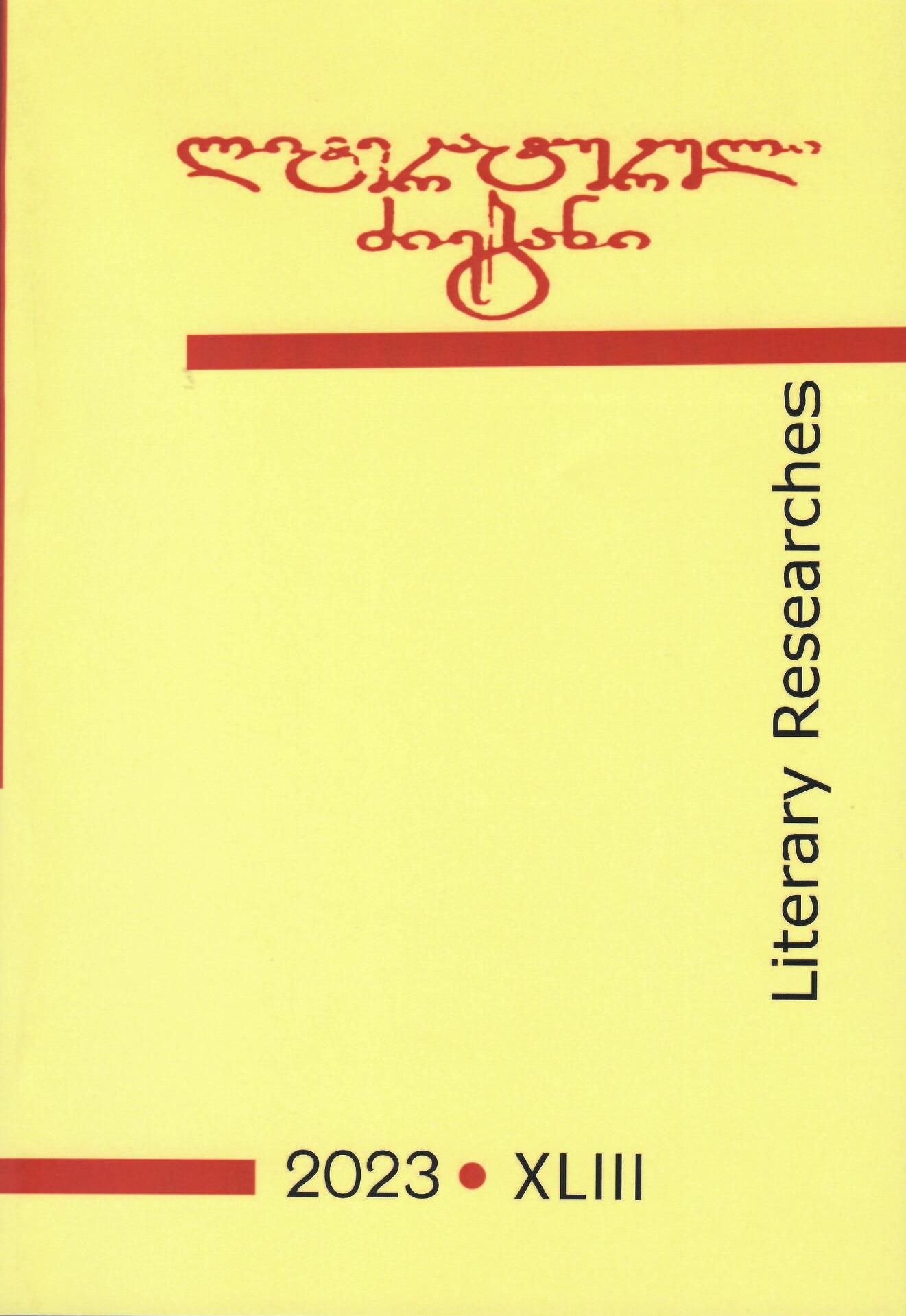გამოქვეყნებული 2023-12-14
საკვანძო სიტყვები
- კინოთეატრები,
- სოცრეალისტური პოეზია,
- მიძღვნითი ლექსები,
- ლექსი-ფელეტონები
როგორ უნდა ციტირება
ანოტაცია
The paper discusses the theme of movie theatres in the Social Realism poetry. Movie theatres were an essential tool for the Soviet Government in raising masses in the Communist way. In the 1920s, movie theatres and cinema clubs were being opened at churches. It was the new Soviet Church that was to play a significant role in transforming the consciousness of the masses. Communism, which sought to incorporate the surrogate function of God, responded to cinema by politicizing it. During the Communism Era, the original tradition of relationships with fire was lost, but primitive forms of relation with fire did not give up and adapted to new cultural forms.
Rituals performed by the Fire: telling stories, singing or dancing – were visual-verbal expressive forms. It was the distance of the opened space, as well as the visual distance of the image – mobilizing the viewer in the dark to the center of one point of light (fire), which united the emotions of the viewer and the listener. It was exactly as it happened in the cinema centuries later. Thus, the ritualistic, centuries old collective going to the Church for centuries was replaced by going to movie theatres and cinema clubs in the
era of Communism of the 20th century. It can be said that Fire as a means of universal transformation in the 20th century, was manifested in the form of cinema.
In addition to the poems, the article focuses on the analysis of cinemarelated reports, feuilletons and articles found the press. Social realism poems are studied right in this context.
As a conclusion, it can be said that three main categories are distinguished in the poems created on the topic of movie theatres:
1. Dedicatory poems about movie theatres in social realism poetry can be found quite a lot in the press of that time. Movie theatres are glorified and the opening of each new building was perceived as another victory for the Soviet Government and the Communist Party. There are dedicatory poems, where the movie theatre is a kind of sacred place. It is not only a film screening space, but also the epicenter of a ritual gathering that replaced the Church during the Communist era. Movie theatres are glorified as the new Soviet church (the word Church itself is of Greek origin and means a place of assembly), where people should share the new Communist knowledge and educational examples. In this type of poems, the cinema screen is metaphorically connected with fire, sun and light. It is noteworthy that this type of tendency can be observed in the 1920s Georgian futurism and modernist authors’ works.
2. When studying the movie theaters, it was also revealed that: World War II-themed poems that reflect the inspiration received at the movie theatres, from the movies dedicated to World War II (such is the case of Mikheil Chiaureli’s The Great Dawn) or the emotions of a lyrical hero are described in parallel with the seen documentary footage. It should be noted that the film frames are also described in the poem in such a way that the mood and montage of the accelerated film rhythm is not lost and preserved.
3. Issues of organizational order and discipline in movie theatres are acute and are almost always the same in different years. Technical defects in film screenings, interruptions in screenings, littering in theatres, undisciplined behavior and etc... are criticized in the press from a Communist ideological point of view, and in the work of educating the labor masses they are called
to improve cinema service for viewers. This type of feuilleton poem is distinguished by humor, exposing established ugliness. This includes specific individuals, movie theater employees, and generally poorly conducted film screenings.
Poems of all these three categories served for the good of the Soviet ideology and the common goal.

